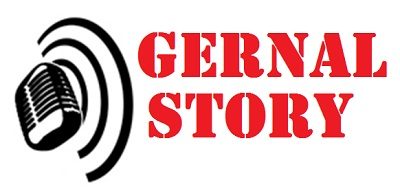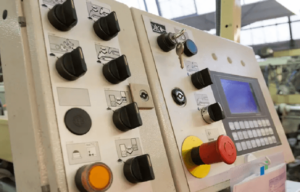How Can Bolt Companies Fulfill Specific Needs for Fasteners?

Custom fasteners are essential to many different sectors because they offer distinctive solutions for particular uses. Complying with unique fastener specifications is a complex task that calls for a thorough grasp of the demands of the customer, adaptability in solution selection, and upholding strict performance and quality standards. Let’s see how bolt companies may successfully provide these needs while maintaining operational effectiveness and customer happiness.
Recognizing the Needs of the Client
Recognizing the unique demands of the customer is the first step towards fulfilling bespoke fastener requirements. In-depth conversations are held to get details on the application, environment, load requirements, and any particular difficulties the fasteners may encounter. Bolt firms may customize their products to fit exact demands by having a good grasp of these characteristics.
Application Information:
The kind of fasteners that are required can also be determined by where and how they will be used. Among them, some of the requirements vary depending on such sectors as aerospace, civil construction, and automotive. For instance, fasteners applied in the construction line of business may require high levels of corrosion whereas those applied in aviation business require high temperature and stress tolerances.
Environmental Factors to Be Considered
The selection and development of the fasteners are greatly concerned with the working environment. For example, fasteners applied to high-temperature environments must maintain their performance and required characteristics during high temperatures, while fasteners applied to marine environments are exposed to corrosion from seawater.
Stress and Load Requirements
Choosing the appropriate materials and designs is aided by knowing the load and stress that the fasteners will experience. Applications with dynamic loads could necessitate fasteners with better fatigue resistance, whereas high-stress applications might call for fasteners constructed of high-strength materials.
Providing Versatile Choices
Bolt firms must be adaptable to satisfy specific needs. This means preparing the supply of materials of various types, sizes, and finishes to meet a variety of requirements.
Material Selection
Different materials including alloy steel, stainless steel as well as non-metallic options for the bolts have to be made available by the bolt makers. All materials have characteristics that make it possible to put them into several applications. For example, alloy steel provides strength for rough use performance whereas stainless steel has high corrosion that is nearly ideal for outdoor use and or marine environments.
Variations in Size
Non-standard sizes are typically needed for custom fasteners. To suit unique demands, bolt suppliers should be able to create fasteners in a range of thread patterns, lengths, and diameters. This covers both imperial and metric sizes to meet needs from throughout the world.
Final Choices
This is the case since fasteners can be polished to enhance either their use or outlook. Bolt manufacturers can offer bot nuts that meet certain environmental as well as visual requirements, or in other words, which are offered in different kinds of surface finishing such as zinc plating, anodizing and coating.
Paying So Much Attention to Quality High quality is vital in the fastener suppliers business. Although bolt firms can find it challenging to invest a lot of money in quality control, they must do so to ensure their products meet the highest quality.
Examining and Verifying
To ensure that bespoke fasteners fulfill criteria, thorough testing and inspection procedures are necessary. This covers material testing, performance reviews, and dimensional inspections. Modern methods such as non-destructive testing (NDT) may be used to find defects without causing harm to the fasteners.
adherence to the standards
Maintaining compliance with industry certifications and standards is essential to guaranteeing dependability and quality. Bolt businesses ought to abide by the rules established by associations. These standards include recommendations for performance requirements, production procedures, and material qualities.
Constant Enhancement
Bolt firms may improve their processes and products over time by putting in place a continuous improvement culture. This entails investing in cutting-edge technology, periodically evaluating and upgrading quality control protocols, and providing staff with training to keep them up to date on industry advancements.
Working together with clients
Bolt providers and their clientele work closely together on successful bespoke fastener projects. This collaboration guarantees that the finished product satisfies all requirements and delivers the desired results.
Design Cooperation
Bolt firms can provide insightful advice and recommendations by directly collaborating with clients during the design phase. Some designs may be made for easier manufacture, at lower cost or for better performance, during the cooperation. One of the strategies that can help in simplifying this process is the use of efficient gadgets.
Testing and Prototyping
Early on in the process, possible problems may be found with the aid of testing phases and prototype development. Small quantities of bespoke fasteners can be produced by bolt businesses for assessment, enabling customers to test them under actual conditions. Test results may be utilized to improve the design and make sure the finished product satisfies all specifications.
Open and Honest Communication
To foster confidence and guarantee good project outputs, open and honest communication must be maintained throughout. To keep clients informed and involved in the process, regular updates, progress reports, and quick answers to questions are provided.
Offering Complete Assistance
Beyond production, requests for bespoke fasteners are met. To guarantee client satisfaction, bolt firms need to provide extensive support services.
Technical Assistance
Throughout the project, offering technical support assists clients in overcoming obstacles and coming to well-informed judgments. Bolt businesses must have competent employees on hand to respond to inquiries, provide advice, and fix problems.
Delivery and Logistics
To satisfy client expectations, effective logistics, and prompt delivery are essential. Strong supply chain management procedures should be in place at bolt firms to guarantee that bespoke fasteners are supplied on schedule and in the necessary quantity.
Post-purchase Support
Providing maintenance and replacement choices as well as other after-sales care may increase client satisfaction and foster enduring connections. Through this assistance, customers are guaranteed to have access to the tools necessary to maintain the efficiency of their business operations.
Conclusion
Complying with specific specifications for custom fasteners is a challenging but worthwhile undertaking that calls for in-depth knowledge of customer demands, adaptability in product offers, strict quality control, and efficient teamwork. Bolt businesses can address the specific needs of different sectors by delivering high-quality, bespoke fasteners by utilizing innovative technology and offering complete assistance. This strategy not only guarantees client happiness but also establishes bolt firms as dependable collaborators in the prosperity of their customers.






